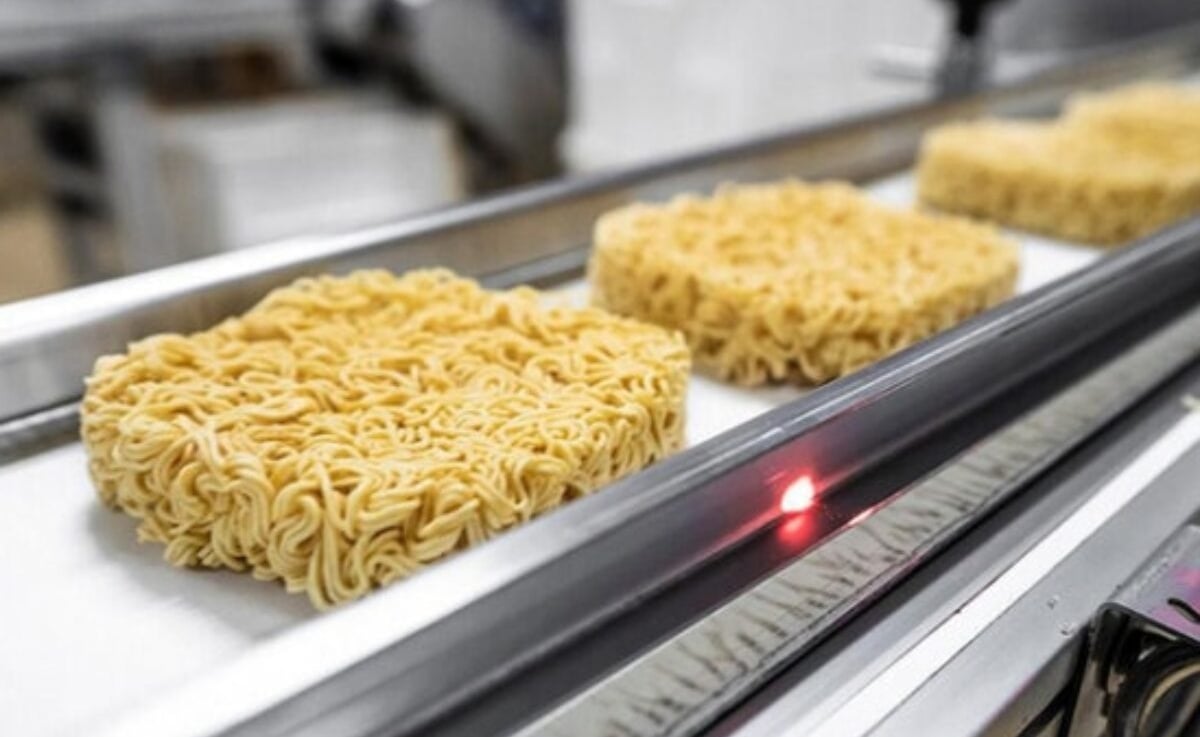November 20, 2025 | 04:22 GMT +7
November 20, 2025 | 04:22 GMT +7
Hotline: 0913.378.918
November 20, 2025 | 04:22 GMT +7
Hotline: 0913.378.918

Vietnam's instant noodles are moved to Appendix I, they are not required to have a food safety inspection certificate issued by a competent authority.
On June 7, the European Commission (EU) published Regulation 2023/1110 amending Regulation 2019/1973 on emergency measures to control food exported to the bloc.
Accordingly, the EU has brought instant noodle products made in Vietnam from Appendix II (control by food safety certificate and control at the border gate) to Appendix I (with a frequency of 20% of border checks).
The new regulation officially takes effect 20 days after its publication in the Official Gazette. Thus, from June 27, 2023, Vietnamese instant noodles exported to the EU will not be required to be accompanied by a food safety inspection certificate issued by a competent authority.
Thus, 6 months after the EU approved the emergency control regulations for Vietnamese rice noodles, vermicelli and noodles (effective from January 1, 2022), Vietnam has persuaded the EU to remove vermicelli and rice products from the list of food safety management. 18 months later, it was the turn of instant noodles that were approved by the EU to be removed from Annex II.
This is the effort of the Ministry of Industry and Trade, the Ministry of Agriculture and Rural Development and related ministries, departments and agencies in controlling food safety and supporting businesses to solve difficulties.
However, the EU maintaining control of instant noodles at the border gate with a frequency of 20% requires Vietnamese authorities and businesses to strictly ensure the control of food safety. This is to avoid the case that happened with dragon fruit: Which returned to Appendix II after a number of violations.
Except for instant noodles, other Vietnamese products exported to the EU remained unchanged from the regulations of 6 months ago. In which, for agro-products, okra and dragon fruit are in Appendix II, with inspection frequencies of 50% and 20%, respectively.
The Ministry of Industry and Trade recommends that Vietnamese instant noodle manufacturers and exporters continue to control food safety and consider applying voluntary measures such as self-testing at reputable laboratories for shipments to the EU.
Translated by Hoang Duy

(VAN) The price of Arabica Catimor coffee in Quang Tri is currently at VND 25,000–27,000/kg (fresh cherries), the highest level ever recorded

(VAN) 'From the coffee story, we can think deeper and further about the crop production sector - from development orientations and value-chain organization to international integration,' assessed Dr Le Quoc Doanh.
/2025/11/18/2431-0-161627_248.jpg)
(VAN) Viet Nam accounts for 43% of the world's export volume of Robusta coffee. However, the Vietnamese Robusta coffee brand has yet to gain broad recognition on the global market.
/2025/11/18/5617-2-125215_406.jpg)
(VAN) The consumption demand for premium, healthy, and cold-brew tea products is rising globally, including in the Thai market, opening new opportunities for Viet Nam.

(VAN) The 3F+ model aims for selective resource management, regenerative protection, green education and consumption, all intrinsic to Dabaco’s sustainable development strategy.

(VAN) Carefully packed tea bags, neatly arranged inside containers, begin their 5,000-kilometer journey to Afghanistan, carrying with them the aroma of mountain forests and the pride of Lai Chau province.

(VAN) 'If we can address disease challenges and properly plan farming zones, Vietnamese shrimp can absolutely rise to lead the world,' Mr. Le Van Quang affirmed.